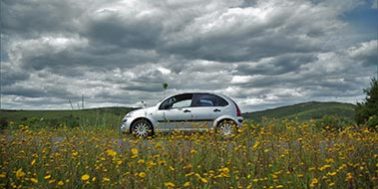If you are planning a holiday at home, which is seeming increasingly likely this summer, there are several checks you should carry out before embarking on a long journey in your car. One of the lesser known (but highly important!) maintenance steps to carry out are checks on your air and pollen filters. These filters perform slightly different jobs in providing clean air, but are equally important in maintaining the health of your vehicle and passengers.
How do air and pollen filters work?
The role of air and pollen filters both hold a key role in keeping your vehicle running smoothly.
An air filter will: ensure clean air flows through your engine by capturing any dust, dirt and harmful materials that come through the air intake.
A pollen filter will: filter the air for the comfort of the driver and passengers, preventing pollen and dust particles from entering the cabin.
The importance of air and pollen filters…
For the engine
A fully functioning air filter will benefit the efficiency of your engine and its components by providing clean air and preventing harmful dust, dirt and debris from impacting its performance.
For the cabin
Keeping your pollen filter clear will ensure clean air is delivered to the cabin of your vehicle. This can prevent any pollen or dust particles from affecting the driver and passengers, and preventing a potential safety risk from occurring. This is particularly important in the summer months when the pollen count is higher and long journeys can become frequent.
For the air conditioning system
A clear pollen filter will positively impact your air conditioning system, ensuring it remains at its optimum efficiency when providing hot and cold air for you and your passengers, as well as effectively de-misting your windscreen.
For your vehicles lifespan
Ensuring your air and pollen filters are working correctly will benefit your vehicle as a whole, in return, aiding the increase of its lifespan. Providing clean air to the engine and cabin will keep these parts running smoothly for an extended period of time, preventing faults from arising.
Repair costs
Due to the overall efficiency of your car being improved, this can have a direct impact on your pocket. With the key parts running smoothly, you could find yourself spending less on repairs, as well as saving money when it comes to your next service.
Replacing your air and pollen filters
Most manufacturers suggest that you should replace these filters in your car either every year, or every 12,000 – 15,000 miles. This information should be specified in your vehicle manual. How often you should replace your filters can also depend largely on the air quality and pollution in the area that the car is driven. If you live in a highly polluted area, or a location with a high pollen count, it is likely your filter will need replacing more frequently.
If you think your vehicles air filters are due a replacement, or you would like to arrange for a full service, get in touch with us at Double Dee Autos by calling 020 8460 3040 or reach us by email at ben@ddautos.co.uk.

